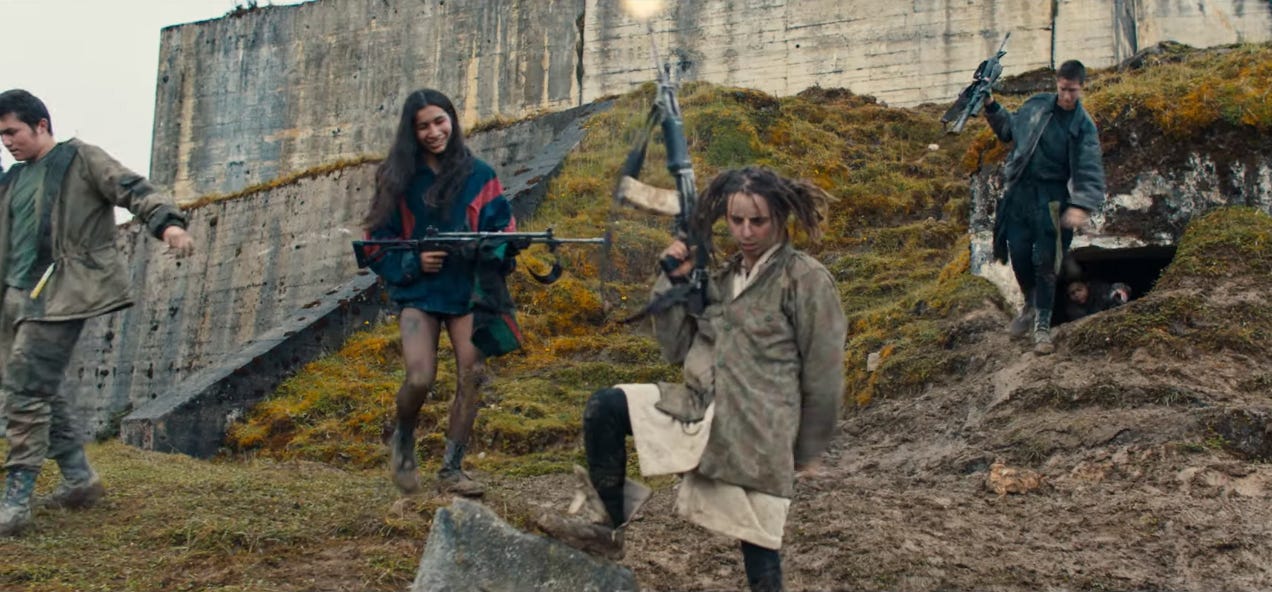Monos

Monos is a bleak and sometimes haunting portrait of the ways in which children often bear the weight of our adult mistakes, and as a result, find their innocence corrupted all too early; in this case, those mistakes have led to a mysterious war, and eight child soldiers have holed up in a decaying fort atop a mountain, guarding a prisoner.
It's a valuable picture in a world where too many children are having their lives and homes torn apart by conflict, and it reaches even beyond its commentary on war to speak further about human nature vs. external influence, much in the vein of Lord of the Flies.
That being said, it doesn't make for the most interesting watch.
The premise and setting of the film are deliberately vague. We don't know where this is, why the war is happening, who is fighting who, how the children got involved, or even whether or not they're the "good guys" in this conflict. Frankly, Monos wants you to know that none of that matters. What matters is that these children, clearly still more interested in entertaining themselves than fighting in a war and watching a POW, have been forced into brutal, unfair, and unforgiving circumstances. All eight have codenames, like Dog, Wolf, Lady, and Boom Boom, though unfortunately, very few have especially distinct personalities. Perhaps this could be a comment on the conditioning and desensitization of violence and war, but frankly, as the viewer, it just makes it harder to care.
The film jumps perspectives frequently, amongst the children and even the prisoner, a woman referred to as "Doctora," presumably due to her profession. The film has no singulae main character, though some clearly get more attention than others. This mosaic-style storytelling is always an interesting experiment to watch a filmmaker attempt, whether or not it works. For director Alejandro Landes, his efforts are a bit of a mixed bag. Landes is undeniably a talented filmmaker—he captures beautiful, powerful images over and over again, and he's mastered the "show, don't tell" rule. But there is something cold about his storytelling here—some of which I'm sure is deliberate. However, a story about humanity could stand to have more humanity in it, and the lack of development of any particular character plays to the film's detriment in its lattermost third.
What we are left with is a visually gorgeous, harrowing depiction of children caught up too quickly in the brutality of the world, brimming with strong performances and resonant moments of cruelty, but lacking in personal attachment, and therefore the opportunity for emotional response.
This may be one that requires a second viewing of me, as I feel I may have missed out on some greater emotional through-line, but honestly, that prospect doesn't sound particularly interesting to me. That being said, it could be worth your while for the stunning photography and unflinching portrayal of human savagery.

